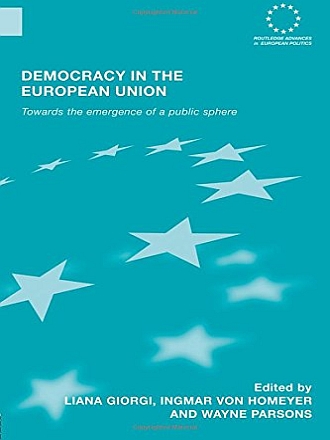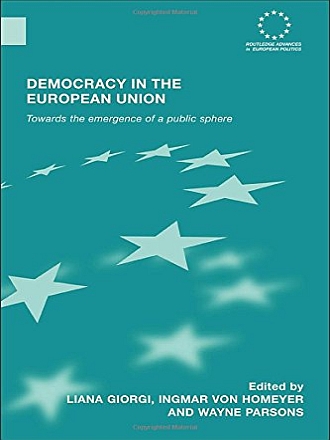
Participatory Governance in the European Union
- Publication
- Citation
Homeyer, Ingmar von 2006: "Participatory governance in the European Union", in: Liana Giorgi; Ingmar von Homeyer and Wayne Parsons (eds.): Democracy in the European Union. Towards the emergence of a public sphere. [Routledge Advances in European Politics 39]. Oxon/New York: Routledge, 43-78.
In his contribution Ingmar von Homeyer examines the level of participatory governance in three issue areas: biotechnology regulation/the revision of the Deliberate Release Directive, European political values/the ‘sanctions’ against Austria/revision of Article 7 TEU, and employment policy/the European Employment Strategy.
Participatory governance is a multidimensional concept. Four aspects appear to be particularly significant: mobilisation of societal actors, public contestation and debate, openness of the decision-making process, and responsiveness of policy-makers. The analysis looks at the extent to which each of these dimensions characterises European policymaking in the three issue areas selected. Variation in the levels of mobilisation, public debate, openness and responsiveness among the issue areas is (partly) explained in terms of four causal factors: common affectedness, organisational embeddedness, decision-making rules, and transfer of competencies to the EU-level. The analysis suggests that organisational embededdness appears to have a particularly strong influence on the level of participation in EU-policy-making.
The publication is a result of the project European Public Space Observatory – EUROPUB sponsored by the European Commission, DG Research.






